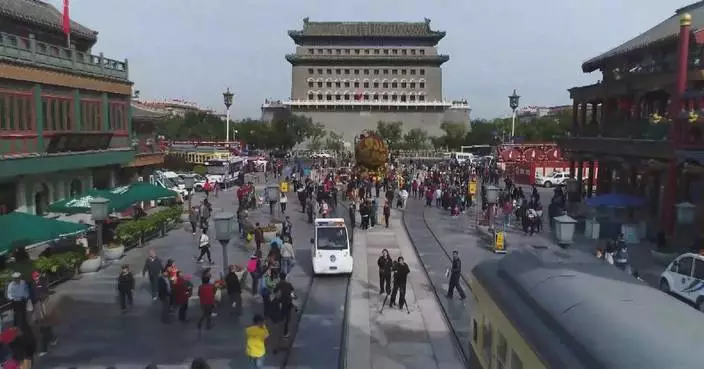The bill that could ban TikTok in the United States could violate several provisions of the U.S Constitution, according to a law professor at a leading Chinese university.
U.S. President Joe Biden signed a TikTok ban bill into law on April 24 after it was passed by both houses of the U.S. Congress.
The law gives TikTok's parent company ByteDance 270 days to sell TikTok to a non-Chinese buyer, with the possibility of a 90-day extension if the U.S. President determines it necessary.
Lu Jiefeng, associate professor of School of Law with the University of International Business and Economics, told China Central Television (CCTV) that the U.S. TikTok ban could violate the freedom of speech provision and disenfranchisement prohibited by the U.S. Constitution.
"Judging from the current situation, this bill could violate several provisions of the U.S Constitution. First of all, this bill could violate the freedom of speech provisions of the First Amendment in the U.S. Federal Constitution. The First Amendment to the U.S. Constitution clearly stipulates that Congress shall make no law abridging the freedom of speech. In this case, a platform for speech used by 170 million Americans has been deprived of freedom of speech. And as a company, TikTok, its freedom of speech is also restricted," he said.
"Second, this bill allegedly constitutes a bill of disenfranchisement prohibited by the First Amendment of the U.S. Constitution. In fact, this bill against TikTok is equivalent to lawmakers in Congress passing a bill to punish a specific company. This is equivalent to the legislature depriving a company of its relevant rights and its property without judicial trial by creating a law. This is a bill of disenfranchisement expressly prohibited by Article 1 of the U.S. Constitution," said the professor.
The professor also said the bill against TikTok is targeted and discriminatory, as it did not put similar restrictions on other domestic social media platforms.
"Third, this bill could violate the equal protection clause of the Fifth Amendment to the U.S. Constitution. In fact, there are many related social media in the U.S. For example, Facebook, and X. However, the bill only targets TikTok, setting a period of prohibition of use and divestiture, and does not impose similar requirements on other social media. Therefore, there are essentially some discriminatory provisions against TikTok, which could violate the equal protection clause of the Fifth Amendment to the U.S. Constitution," said Lu.

U.S. TikTok ban violates several provisions of Constitution: Expert









